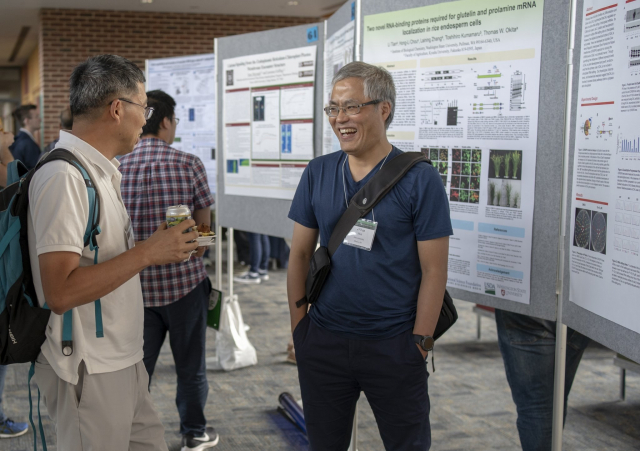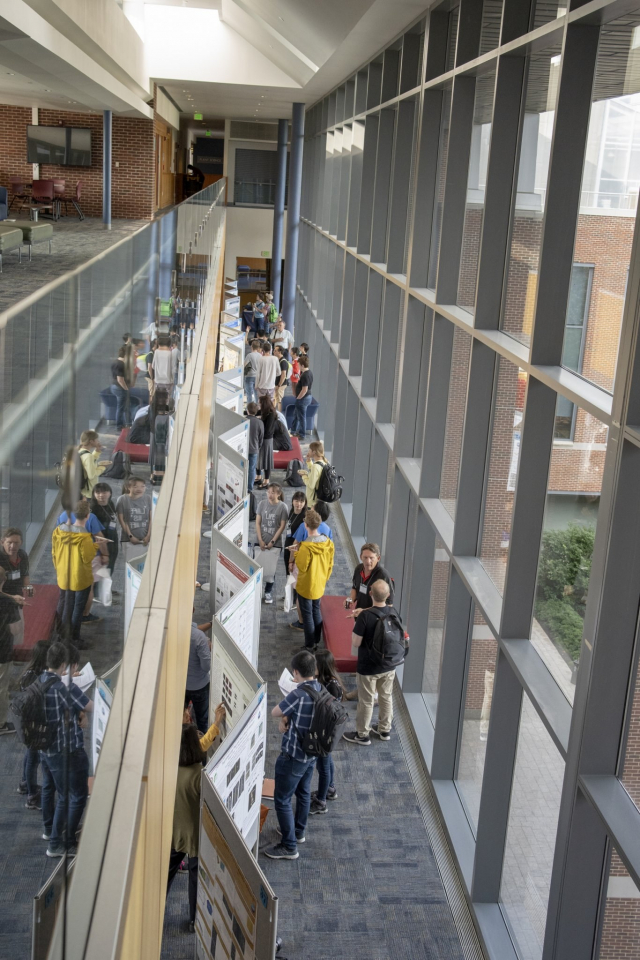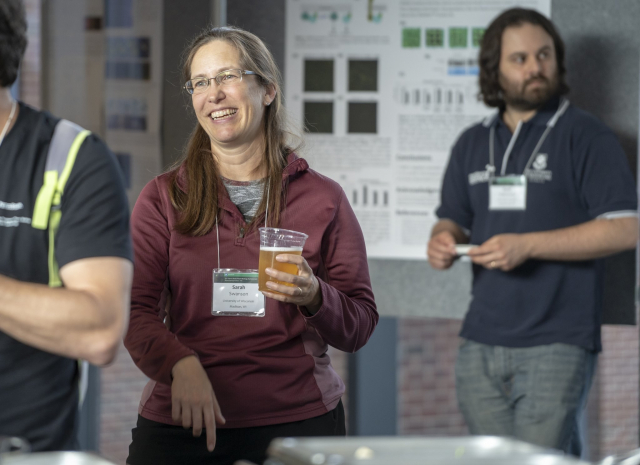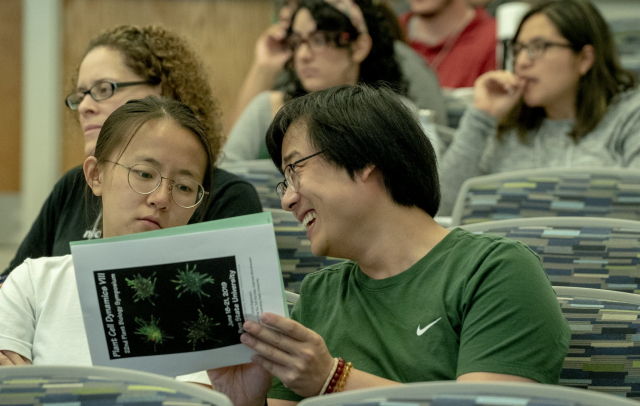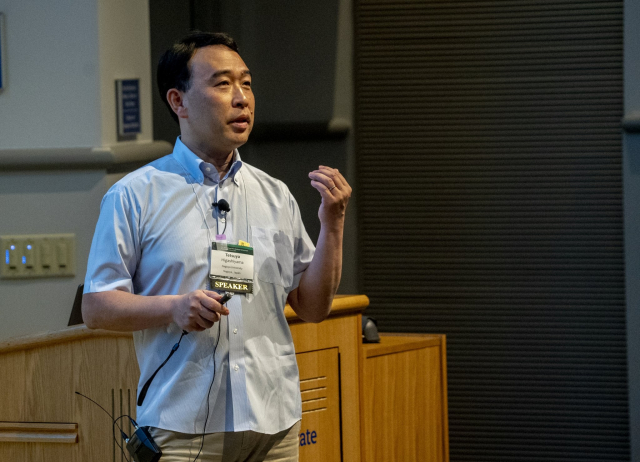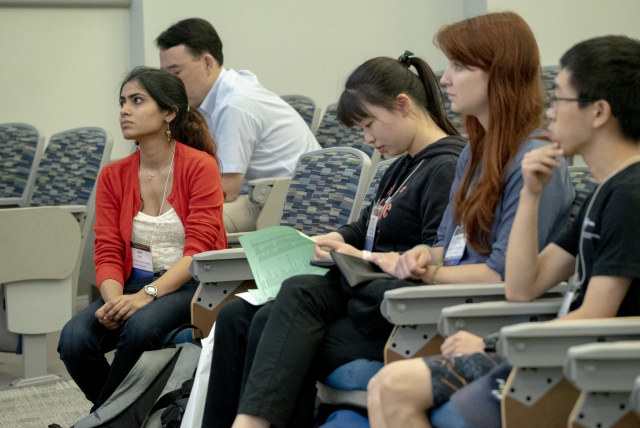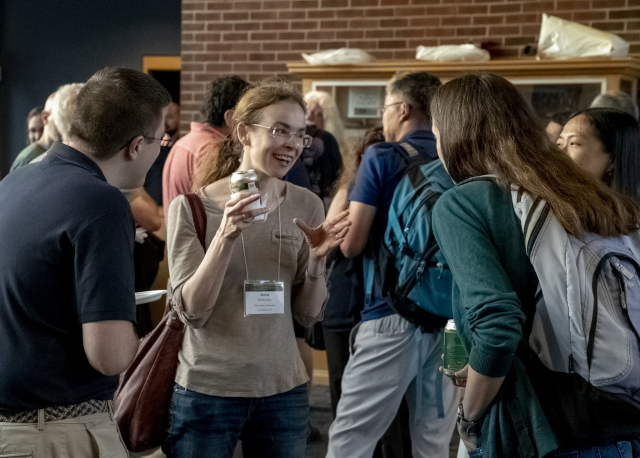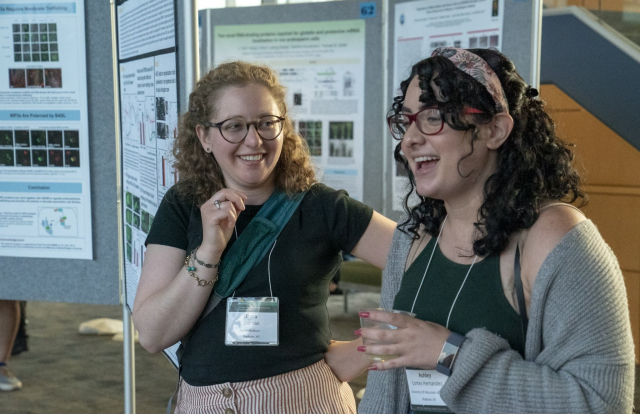Jul 03, 2019
Cell Dynamics takes center stage at 2019 Plant Biology Symposium
The 22nd Penn State Plant Biology Symposium was "a great success," according to organizers, who joined it with the Plant Cell Dynamics VIII meeting in an effort to encourage wider collaborations.
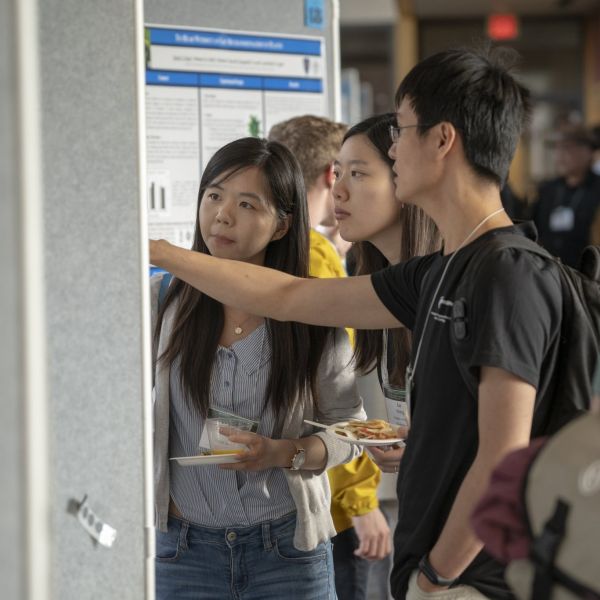
For more than three decades, Penn State has hosted the Plant Biology Symposium, exploring important, fast-moving topics in the field. This year the gathering, which ran June 18-21, merged with the annual Plant Cell Dynamics meeting, an event usually held at the University of Wisconsin. Around 120 scientists from more than 45 labs across North America attended.
Penn State Associate Professor of Biochemistry and Molecular Biology Ying Gu, one of the symposium organizers, explained the scientific rationale behind the collaboration: "There is a growing core of plant cell biologists who seek to better understand the underlying mechanisms of organelle and cell dynamics."
"This year’s symposium topic was unique," added Charles Anderson, Associate Professor of Biology and another organizer. "We were able to bring an existing, vibrant community of plant cell biologists to Penn State, and also add additional plant cell biologists from East Coast institutions to our community."
The strength of that community is a major advantage of Penn State's Plant Biology Symposium, likely the only international conference on plant biology organized by the faculty of a single graduate program.
"Each symposium limits attendance to no more than 200," said Teh-Hui Kao, Distinguished Professor of Biochemistry and Molecular Biology and chair of the Intercollege degree program in Plant Biology. "The intimate setting allows both formal and informal interactions between and among students, postdocs, PIs, and industry scientists."
"This is my second year at this conference and it's always a great community, said Matthew Dwyer, a graduate student at Indiana University. "Everyone's super willing to help and talk to you."
"It's awesome," said Kaija Goodman, a grad student studying at the University of Wisconsin-Madison. "I really love the symposium. I've just finished the fifth year of my PhD, so I've come pretty much every year I've been a grad student."
"It's really small, and nice, and everyone is super friendly. You learn a lot, and people are super supportive and helpful."
The symposium kicked off with a keynote address from Tetsuya Higashiyama of Nagoya University, and featured a wide range of talks, workshops, and presentations.
"We've had a couple of talks today about inter-species barriers to pollination of Arabidopsis," said Wisconsin-Madison grad student Dana Dahhan at one of the poster sessions. "These people have put up some really good talks with great visuals about the biochemical method of what prevents inter-species breeding."
"I really liked the signaling panel," added Goodman. "It had a bunch of calcium signaling stuff, and stuff on stomatal lineage, basal polarity affecting asymmetric divisions which is pretty interesting. It's not what I have on my poster, but I've explored some of that."
For Indiana grad student Dwyer, one of the highlights was the cutting-edge equipment being demonstrated: "So far, a lot of the technologies for imaging are really cool. Using some of the calcium sensors, stuff like that has been really cool, because a lot of my work involves confocal microscopy, and I'm always interested to see those techniques being used."
The sessions covered an array of topics, including cell walls, cell division, signaling, organelle tracking, the cytoskeleton, data reproducibility, career development, protein/RNA dynamics, organelles, and plant cell walls. But some of the biggest highlights were the poster session receptions, where early career scientists could present their work and talk to colleagues in a less-formal setting. Many attendees stayed well after the scheduled end times to discuss scientific topics.
"With the exception of two keynote talks by leading faculty in plant cell biology, oral presentations and poster presentations by graduate students and post-docs are the focus," said Gu.
The event also allowed the organizers to advertise Penn State to their colleagues and the up-and-coming researchers in attendance.
"I am very grateful for the generous support of the symposium by Penn State’s Huck Institutes of the Life Sciences, Eberly College of Science, Department of Plant Science, Department of Biology, and Department of Biochemistry and Molecular Biology," said Anderson.
"The internal support for our symposium is outstanding, and allowed us to host an affordable, enjoyable, and scientifically fruitful meeting while showcasing the collaborative spirit of Penn State."
"The conference has been very good to us so far," said Dahhan. "We've had a couple days of really interesting talks, and really courteous hosts—the campus is absolutely gorgeous."
